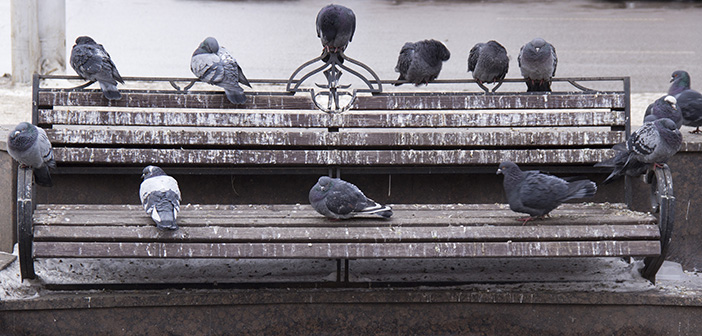The British Pest Control Association has warned that up to 49% of feral pigeons could carry an infectious disease that can be passed to humans.
BPCA has issued an online guide to tackling problems with pigeons, gulls and other potential pest bird species.
The guide – with accompanying video – outlines safety concerns posed by birds and examines the legal issues surrounding bird control as well as exploring the life cycles and habits of pest species.
Dee Ward-Thompson, BPCA’s technical manager, said: “We love British birds. All wild birds and their eggs in the UK are rightfully protected by law under the Wildlife and Countryside Act 1981.
“Unfortunately, a few species of birds come into direct conflict with humans when they take roost in or around our homes or businesses. These birds can cause real problems, including excessive nuisance and public health concerns.
“Research suggests that up to 49% of feral pigeons could be infected with Chlamydia psittaci. Human infection is called ornithoses and symptoms include chills, fever, sweating, severe weakness, headache, blurred vision, pneumonia, possibly death.”
Ms Ward-Thompson added: “When dry, pigeon droppings can become airborne in small particles which can lead to respiratory complaints.
“Bird droppings can also be slippery and can cause a serious risk on pavements, particularly under roosting birds. They also make businesses appear unclean and imply a state of disrepair.”
BPCA’s guide to birds also highlights the risk of secondary insect infections, as well as the issue of unprovoked attacks from gulls during breeding season. The advice features seven signs birds are becoming a problem.


